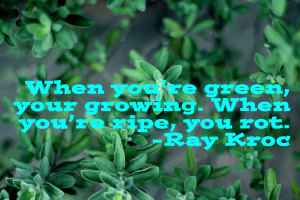by Angela Smith | Jun 4, 2016 | Writing
My boss recently told me how impressed he was with my fiction writing. It made me nervous. I write romance novels! I don’t need my boss reading that!
Then I remembered that, although I am writing these novels about these characters, they are not me. It’s like being an actor. Jim Carrey is not a pet detective, Christian Bale, as much as we might like to think so, is not Bruce Wayne, and Matt Damon is not Jason Bourne and capable of killing. They are playing characters, and doing a damn fine job, and that’s what being a writer is all about.
Being a writer is like your character speaking through you. Like they have a story to tell, and they are using you as the vessel. Okay, that might be strange heebie jeebie stuff, and it isn’t as strange as it sounds, but believe me when I say it is my characters who tell the story, not me. My characters do go silent on me. They stop talking to me, and then I’m lost in my story, trying to find my way through a really confusing path. It isn’t fun.
As a matter of fact, the ones I’m writing now have done so. I’m trying so hard to tell the story they want me to tell, but I got stuck because I was trying to write things the way I wanted to write them, and not the way the character wanted me to. I think I’ve finally figured it out, but it’s still a really long process trying to weed through those, well, weeds.
So todays writing tip is to listen to your characters! Don’t let other voices get in the way of your voice. You have your own voice, and it usually comes through when you listen to your characters, because they are the ones to ultimately tell the story! If your writing is based on plotting more than character, then listen to the plot, because your plot is your character! And don’t be afraid to go all out. If others don’t approve, well, that’s their tough luck!
by Angela Smith | Jan 23, 2016 | Writing
…and Why I Will Remain a Pantser

Ahh, the whole plotting vs pantsing issue. We’ve all heard it, right? The pros and cons, what works and why. And yet most people tell you that you are capable of being a plotter and that you should, in fact, try! I haven’t found any books on why you should continue to write by the seat of your pants, or how you can write by the seat of your pants, but there’s plenty out there about plotting.
I’ve been writing for years, and at every single new book I try the plotting method. You’d think that after all this time I’d figure out that plotting doesn’t work for me. And yet, I yearn for it to work, because I always feel like the book will be written faster. Is it the whole grass is greener mentality?
The truth is, it doesn’t make it shorter for me. I’ve had this idea for a novel for years now, but I made the mistake of trying to plot it all, and now it sits on my hard drive just waiting for the day I pick it up again. I hope that 2016 will be that year, and I wonder why this happened. Some would say it wasn’t ready, or it wasn’t meant be, but I say I overthought the story. Usually when this happens, I have to start completely over.
So I took it upon myself to figure out why plotting doesn’t work for me, and although I haven’t figured it all out, I think I figured out the logistics.
Plotting is too structured.
I’m in awe of those who can do it, but I’ve never been good with puzzles, and plotting is too much like a puzzle to me. Even though the way I write my scenes and then piecing them together is like a puzzle, it’s a different kind of puzzle. It’s like comparing a 1000 piece puzzle to a 100 piece puzzle, or a crossword to a word search. Okay, maybe not, but still. I’ve never had enough patience to do 1000-piece puzzles. Heck, 100 pieces is almost too much. Can I count to ten, please?
Plotting makes me think too much.
Like I mentioned before, if I plot, I overthink the story. I think too much about it, and it loses the gem it could have been. I’ve thought so much about it that I lose all the emotional connection to it, and it becomes like a long highway where I’m just trying to get to the end. To home. I often wonder if it’s because plotting uses a different brain wave, but I haven’t figured that out about myself yet. I do have tunnel vision, after all.
Plotting makes me lose interest in the story.
I lose interest after I plot my story. By the time I’m done, I feel like it’s done, even when it doesn’t have a real beginning, middle, and end. I love fleshing out my characters, love creating character collages, and love writing down scene notes. But plotting just over complicates the mess that is my book, and I give up. I love discovering things as I write it out, and even though you don’t have to stick to your exact plot, I still lose interest in it if I plot.
Plotting doesn’t feel creative.
Not to me. Again, I’m intrigued by those who do plot, and I know those who do it consider it a craft. It’s a huge talent. Do plotters ever just try to write by the seat of their pants? I’ve always wondered. I know it’s a creative talent, but for me it’s too much structure and routine. I absolutely love geography and can read maps, but I’ve never been good with directions.
For pantsers trying to be plotters, it just doesn’t work.
If you’ve made it work, I am intrigued and would love to know what you’ve done! But I give up! I will remain a pantser, who might plot a little after a few chapters are written, but then continues to pant along the way!
by Angela Smith | Nov 7, 2015 | Writing

Writers should always be green and growing. Even those who have penned hundreds of novels or sold millions of copies should constantly be learning how to be better.
I believe the best way to grow is to read, and read a lot. Not so that you can steal other’s ways of writing, but to absorb their great knowledge. Stories and words, character arc and sentence structure, body language and emotion—reading how other writers do these can make writers more creative with their own.
No matter how much I think I might know about a certain writing topic, I love to read writer’s craft books to see how others do it and maybe learn something new. Even if I don’t take someone’s advice on plotting, I might learn something that helps me or reminds me.
That being said, I do have a few How-To-Write Books that I think all authors should have on their shelf. Here’s my top five:
1. On Writing, by Stephen King
Whether you love him or not, Stephen King is a master at his craft, and he knows how to tell a (frightening) story. His book is one of my favorites, because it speaks of his struggles as a would-be author before anyone knew who he was, and offers his own brand of advice. I can’t say enough about this book, but it helped me to be proud of who I am and what I write. He’s a genius, plain and simple, but he’s had his own struggles. I think admitting those is what makes him the brilliant writer he is.
2. Prosperity for Writers: A Writers Guide to Creating Abundance, by Honoree Corder
I love positive thinking books, and find them good reminders of how to change my thoughts. This book was much more than just a “think positive” book. It offers exercise, suggestions, and backstory of the writer’s life to help you recognize, understand, and get out of your own limiting beliefs and change your thought patterns when it comes to your writing.
3. Take Off Your Pants!: Outline Your Books for Faster, Better Writing by Libbie Hawker
Ugh, another plotting book you might think. It took me a while to buy this and read it, because of my fear of plotting and all the other books I’ve read in the past. I can’t tell you how many plotting books I’ve read that I haven’t been able to follow. And some that I’ve liked and will never read again. I love plotting books, love learning how other people plot. I am not a plotter, and usually when I plot I get way stuck! But this book was a nice epiphany on how to get my novel plotted, without really having to “plot” in the way I’ve known plotting to be n ways that normally suck out the enthusiasm for my story before it even starts. Also, some plotting books tell you they’ll teach you how to plot, but they really don’t. They just offer examples of plots of TV shows, etc. Loved this book, and will read it again.
4. The Emotion Thesaurus: A Writer’s Guide To Character Expression, by Angela Ackerman and Becca Puglisi
Every writer should have this book on their shelf.
5. Mary Buckham’s Writing Books
Seriously, there’s too many to list and they are all books that writers, especially beginners, should read. Her Active Settings and Active Hooks books are especially important. As a writer myself, I find that Mary Buckham’s books and courses are some of the best, as well as Margie Lawson. If you want to grow as a writer, read Mary Buckham’s books on writing.


